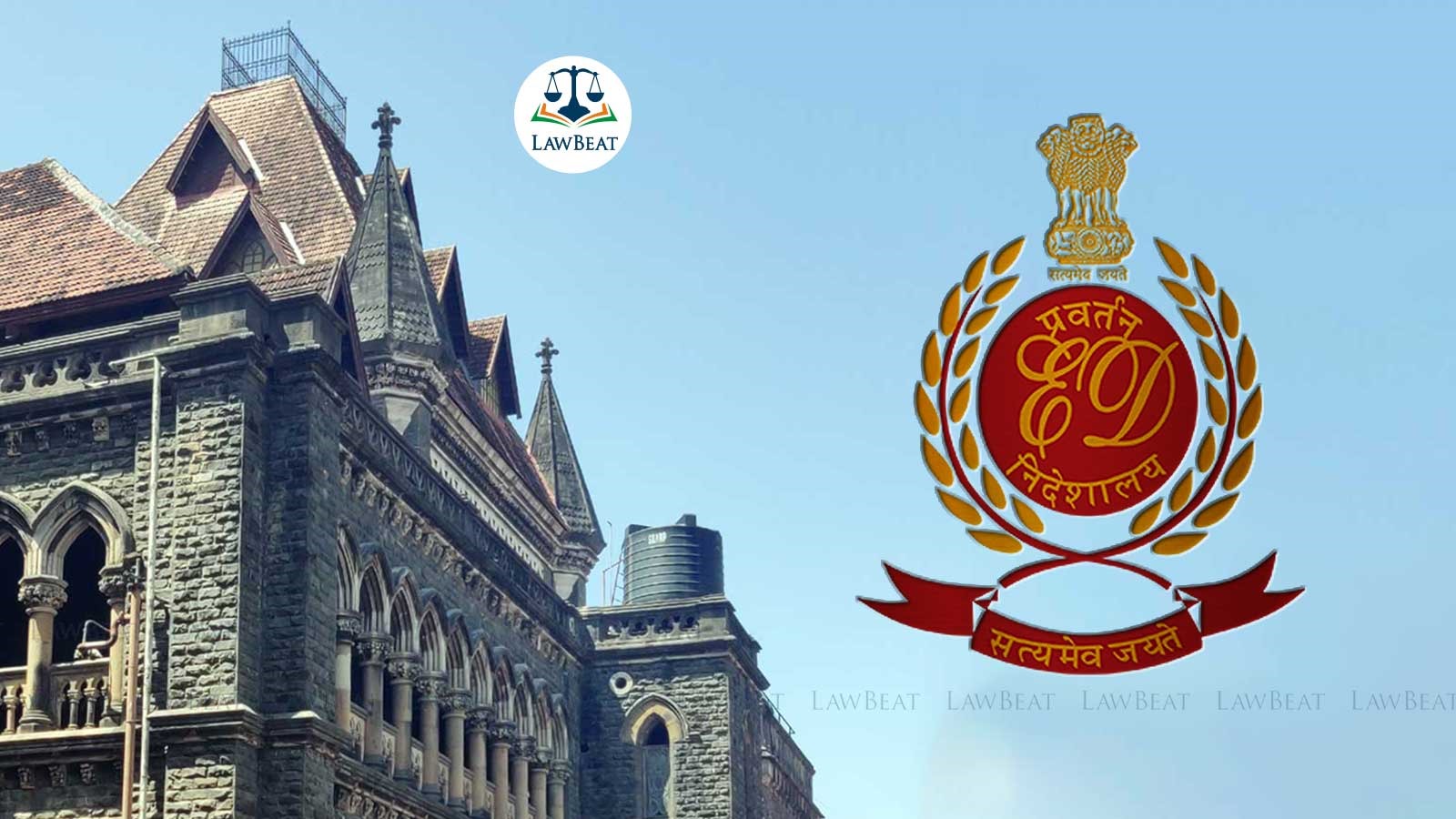'Right to Sleep’ A Basic Human Right, ED Violated it With Late-Night Interrogation: Bombay HC

The court said, "Statements must necessarily be recorded during earthly hours and not in the night when the person’s cognitive skills may be impaired”
In a significant ruling, the Bombay High Court has underscored the importance of the right to sleep, equating it with other fundamental human rights, ruling that the recording of statements of the accused at unconventional hours violates basic human rights.
A Division Bench comprising Justice Revati Mohite Dere and Justice Manjusha Deshpande, disapproving the practice of late night interrogation, said that “Recording of statement, at unearthly hours, definitely results in deprivation of a person’s sleep, a basic human right of an individual.”
The court's observation came during a hearing of a criminal writ petition filed against the Directorate of Enforcement (ED) by a 64-year-old man in judicial custody.
The petitioner, summoned under Section 50 of the Prevention of Money Laundering Act (PMLA), accused the Enforcement Directorate of violating his fundamental right during interrogation. The petitioner claimed his liberty was restricted, with officers constantly surveilling him and prohibiting communication. The petitioner alleged that he was even accompanied by the ED officials while he used the washroom. Despite being medically unfit, he was interrogated throughout the night, depriving him of sleep, a basic human right, enshrined under Article 21 of the Constitution of India.
Additionally, the petitioner argued that he was not brought before the nearest Magistrate as required by law but was flown to Mumbai instead. Although produced before the PMLA Court in Mumbai, transit remand was sought without pursuit, and he was remanded to ED custody.
The petitioner's counsel contended that the 24-hour detention period elapsed without proper magistrate presentation, violating constitutional provisions.
The Enforcement Directorate defended the legality of the petitioner's arrest, asserting that he was brought before the court within the mandated 24-hour period. According to ED, the petitioner voluntarily visited the ED office in Delhi in response to a summons under Section 50 of the PMLA on August 7, 2023, and was not detained. It was further argued that individuals summoned under Section 50 are not considered accused until formally arrested under Section 19. The petitioner was arrested at 5:30 a.m. on August 8, 2023, and promptly presented before the Special Court in Mumbai at 5:15 p.m. the same day, meeting legal requirements.
The High Court, in its ruling, highlighted the differences between investigations under the PMLA and the Criminal Procedure Code (CrPC), emphasising the importance of respecting the accused's fundamental rights during such proceedings. The court said, “Voluntary or otherwise, we deprecate the manner in which the petitioner’s statement was recorded so late in the night which went on post midnight, till 3:30 a.m.”
The court emphasised that statements recorded under Section 50(2) of the PMLA hold a distinct legal status compared to those recorded under Section 161 of the Code of Criminal Procedure (Cr.P.C). They are considered as evidence and are treated within the context of a judicial proceeding.
The court also observed that “ED officers are not police officers, inasmuch as, the said proceeding before the officers is a judicial proceeding”, as clarified in Section 50(4) and upheld in the case of ‘Vijay Madanlal Choudhary’. This distinction underscores the unique nature of investigations under the PMLA, where statements under Section 50(2) and (3) must be signed, and the proceedings are deemed judicial within the purview of Sections 193 and 228 of the Indian Penal Code (IPC).
Emphasising the importance of sleep for maintaining health and cognitive abilities, stating that “The `right to sleep’ / ‘right to blink’ is a basic human requirement, inasmuch as, non-providing of the same, violates a person’s human rights. It affects a person’s health, may impair his mental faculties, cognitive skills and so on. The said person, so summoned, cannot be deprived of his basic human right i.e. right to sleep, by the agency, beyond a reasonable time. Statements must necessarily be recorded during earthly hours and not in the night when the person’s cognitive skills may be impaired.”
Despite the petitioner's previous non-compliance with summons, the present being the fourth summons, the court deemed the late-night recording unnecessary, suggesting that the petitioner could have been summoned on a different day.
In light of these observations, the court directed the ED to issue circulars or directions regarding the timings for recording statements under Section 50 of the PMLA, ensuring compliance with human rights.
Accordingly, the court dismissed the petition.
The case is listed on September 09, 2024 for recording compliance of the court's directions by the ED.
Advocate Vijay Aggarwal represented the petitioner, while PP H.S. Venegavkar appeared for the respondents.
Cause Title: Ram Kotumal Issrani vs Enforcement Directorate [CWP (STAMP) NO. 15417 OF 2023]
